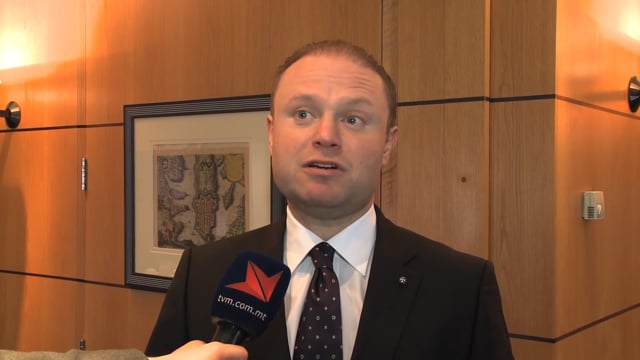Muscat: UK will no longer be trusted if it exits the EU
Prime Minister shares his views on Brexit and the Commonwealth at Chatham House



The European Union would have to launch a search for a new "equilibrium" if the United Kingdom were to leave for good, Prime Minister Joseph Muscat said.
Speaking of the different balances that made up the European Union, Muscat argued that a Brexit would fundamentally change the European Union.
Delivering an address at Chatham House, an independent policy institute based in London, Muscat said that the United Kingdom “would be respected but not trusted”.
He told Chatham House that he had campaigned against Malta joining the European Union but, in accepting the results of a 2003 referendum, the Labour Party moved forward.
“When people opted in, we considered the case settled for good, and rather than wasting our energy indulging in self-satisfactory Brussels bashing every time something went wrong, we set it on ourselves to make things right.
“Today, the party and government I lead are sensibly pro-European and realists, seeking the benefits of integration but jealously guarding the need for flexibility and sovereignty.”
As he built up his argument as to why a Brexit would not be beneficial to the UK or the European Union, Muscat spoke of the “perennial balancing act between countries” that made up Europe.
“The UK is an essential part of that balance as it is a counterweight to a more centralised, one size fits all approach. The United Kingdom’s departure from the European Union would necessarily result in a search for a new equilibrium.”
Muscat said that a Brexit would change the EU fundamentally, a change that several would not find agreeable.
According to Muscat, the two years of negotiations that would follow would probably be characterised by three main factors: the UK would no longer be treated as family, and thus it would not be trusted; negotiating an exit arrangement for the UK would be perceived as a time consuming distraction from tackling more pressing issues; the freedom of movement of persons would remain a main requirement for any free access to the single market.
“Brexit would make Europe a more difficult creature for the United Kingdom to cope with. You would have more control over your own decisions, but less influence where it really counts.”
Muscat reiterated that the European Union needed further reforms to bring Europe closer to its citizens – one of the goals Malta will seek to reach during its first ever Presidency of the European Council next year.
He also spoke of the Commonwealth, arguing that it has to be about the future.
“The drawback with the Commonwealth is that so far it has been mostly about the past. It was about legacy and nostalgia. Nothing wrong with that. But for my generation, it is difficult to be nostalgic about something you do not know and never lived. If I have this block, just imagine my children,” Muscat said.
“So to be increasingly relevant, the Commonwealth has to be about the future. The opportunity to work and study in another country, sharing experience and best practice, giving a global platform to societies and ideas which would never make it past national borders.”



.png)




.jpg)





.jpg)








